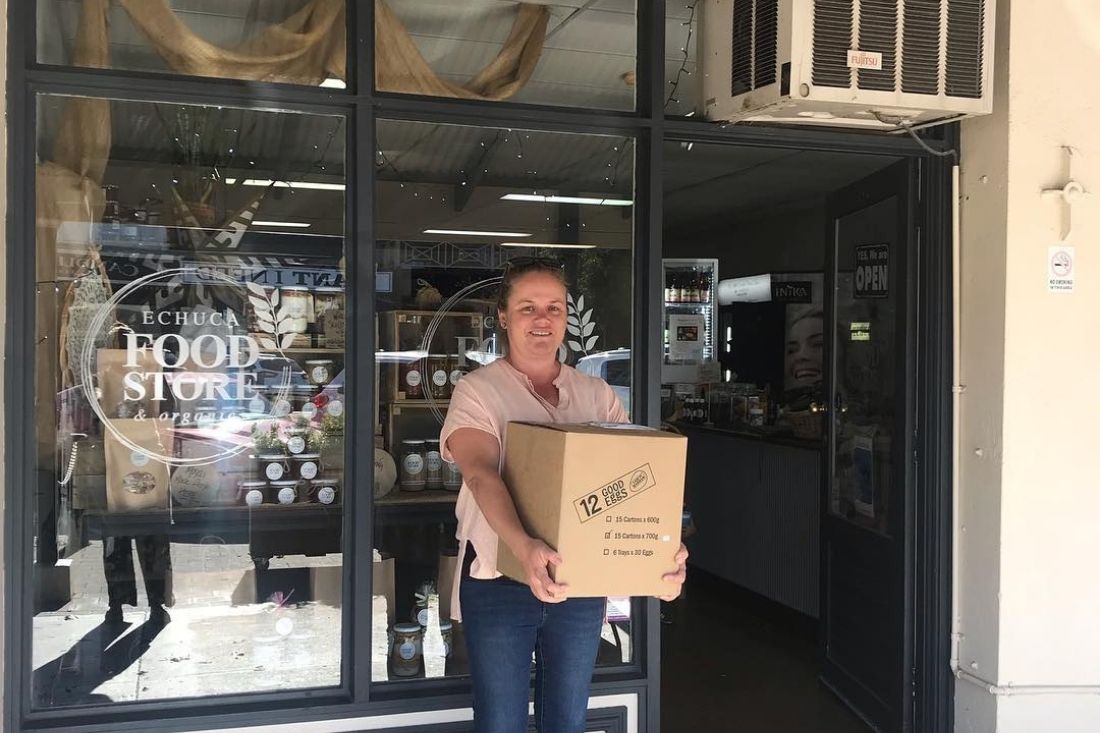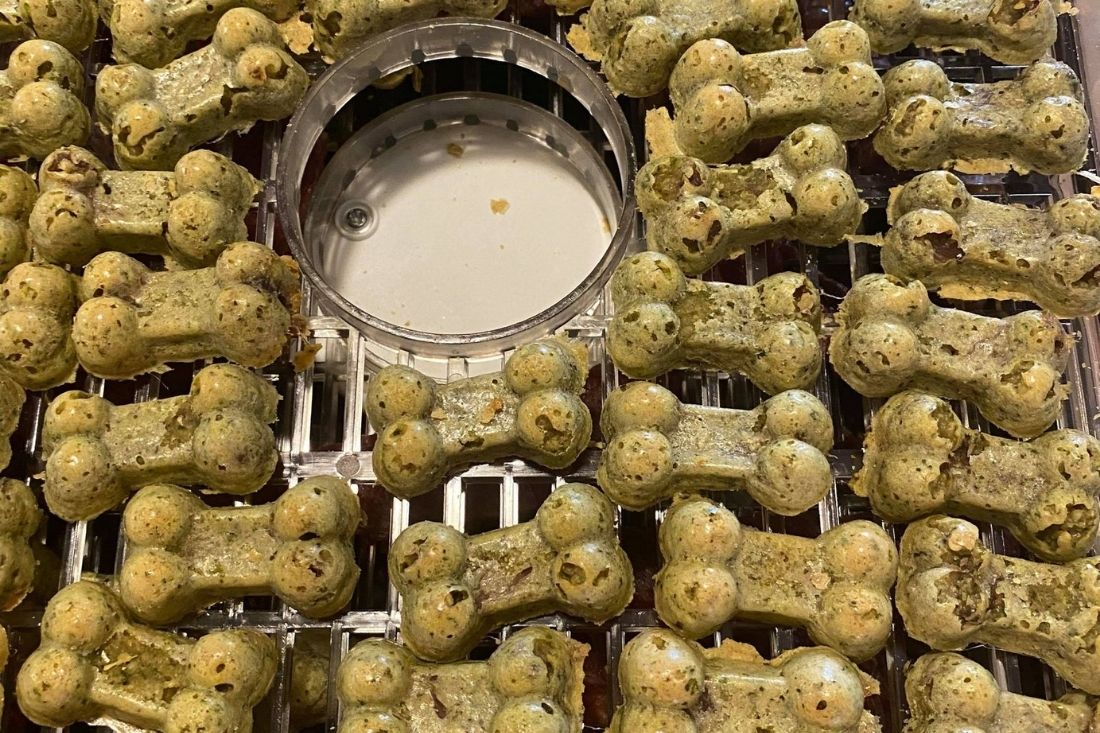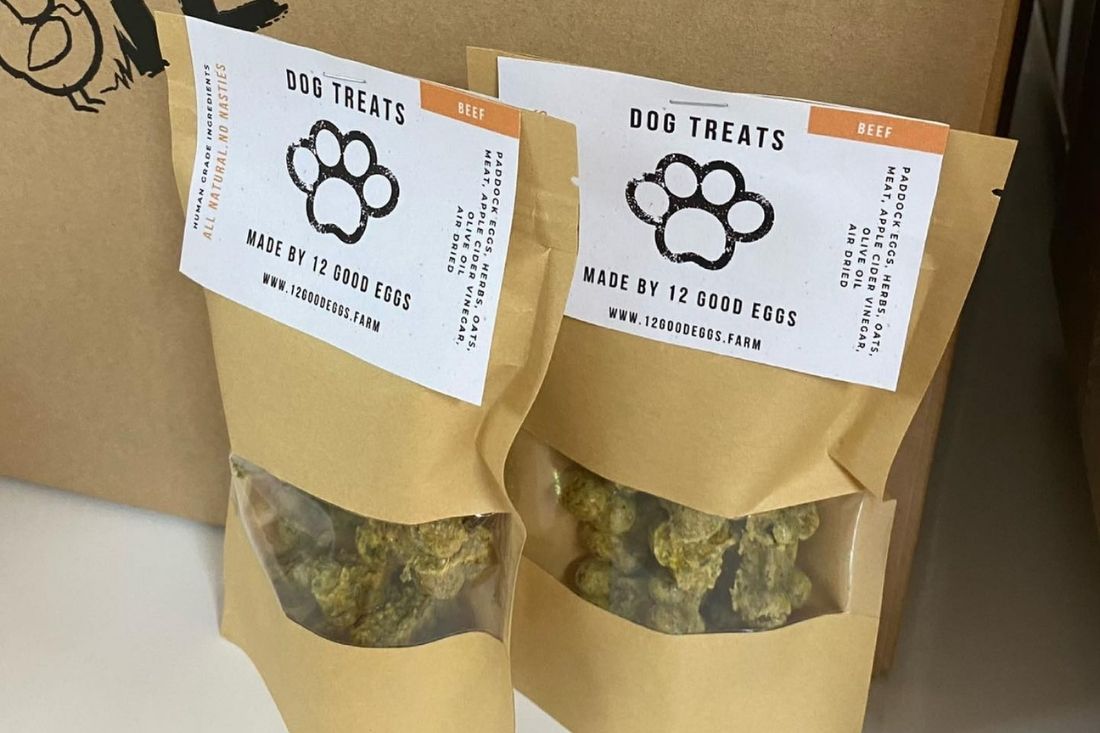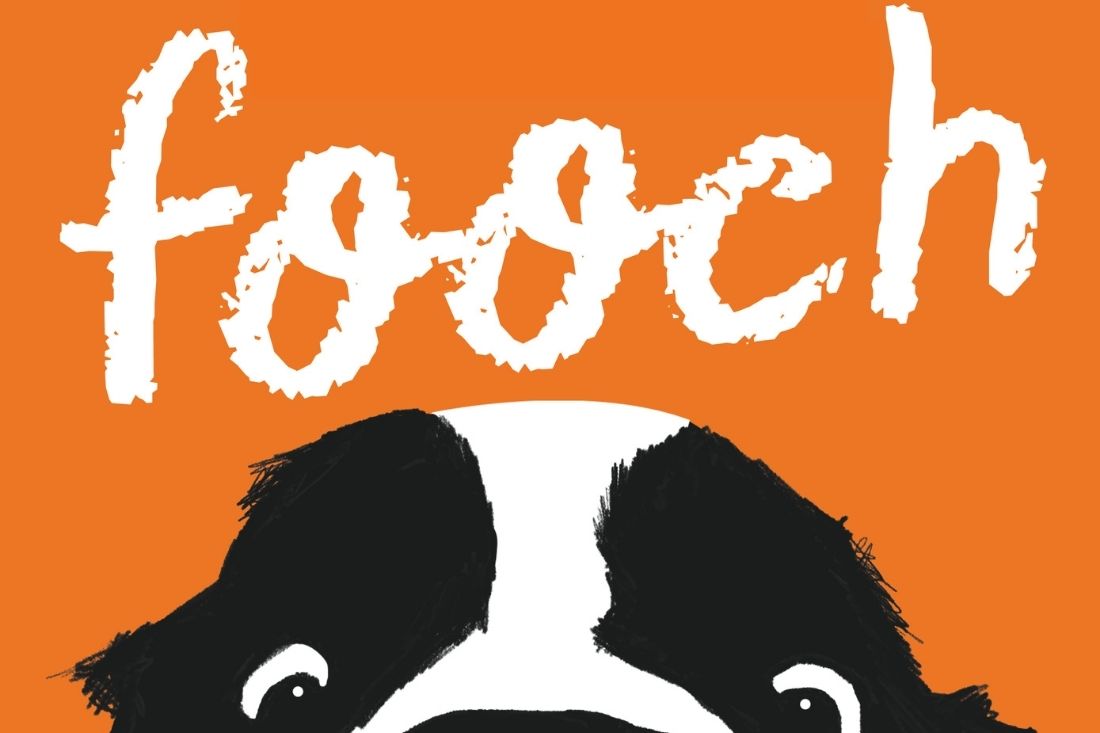Waste Works A Treat
Kate Redfearn was at a fork in the road last year. Six years earlier, she had purchased 12 Good Eggs, a free-range egg farm located just outside of Moulamein in partnership with her parents. Business was going well and there was capacity to take the next step, but she was unsure of the best way to propel it forward. One option she was considering was a traditional path of increasing the number of chickens on farm and in turn increasing her supply of eggs. Which would mean finding more customers and more channels to sell through. Kate however also had a business challenge in mind that had always bothered her - waste.
Waste at one point seemed like an inevitable business challenge. Eggs for human grade consumption are meticulously selected. If there was the finest hairline fracture, invisible to the naked eye (luckily there are machines for that), it meant that an egg would be cast off. Then there’s eggs that are too big, or too small, or those that have defects. The ones which shells are too weak, meaning they are likely to break in transit. There is also the challenge of seasonal egg trends and matching supply demand on a short shelf -life product. Kate estimates that she was wasting 2.5 percent of her egg production each week. Apart from it being disheartening to see her and her parent’s hard work being thrown away, there is of course the matter of lost income. She also could not help but think that she was involuntarily contributing to a bigger picture issue.
Waste at one point seemed like an inevitable business challenge. Eggs for human grade consumption are meticulously selected. If there was the finest hairline fracture, invisible to the naked eye (luckily there are machines for that), it meant that an egg would be cast off. Then there’s eggs that are too big, or too small, or those that have defects. The ones which shells are too weak, meaning they are likely to break in transit. There is also the challenge of seasonal egg trends and matching supply demand on a short shelf -life product. Kate estimates that she was wasting 2.5 percent of her egg production each week. Apart from it being disheartening to see her and her parent’s hard work being thrown away, there is of course the matter of lost income. She also could not help but think that she was involuntarily contributing to a bigger picture issue.
And waste is a big issue. According to the Australian Government Department of Agriculture, Water and the Environment food waste costs the Australian economy $20 billion each year. It is reported that Australians waste around 7.3 million tonnes of food annually or one in every five bags of food shopping that we purchase. Money and resource wasted aside; it also has a negative environmental impact making up more than five percent of Australia's greenhouse gas emissions. Kate acknowledged that following the path of producing more eggs without a plan in place to utilise waste would lead to even more waste being produced.
So, she started researching. She toyed with the idea of making egg pasta, but food safety and the labour involved was complicated. Plus, there was still the issue of eggshell waste. Then Kate came across the idea of pet food. With the rise in popularity of Doggy day spas, Barkuterie (yes, charcuterie platters for your dog), designer collars and leads, it is fair to say that people have gone barking mad for their dogs. Dogs are treated more like family members than well, pets. According to Business Insider Australia, in 2019 the pet industry was worth more than $12.2 billion. With 5.7 million households across Australia having at least one pet, and two in every five households (38 per cent) having dogs as pets, and all trends pointing to owners spending only increasing on their precious pooches, this seemed like a market worth having a crack at. Dog treats would allow her to utilise 100% of the egg waste (shells included) generated on farm. And from there, the idea of Fooch, “Premium dog food for your pooch” was born.
When the opportunity presented itself for Kate to participate in our Business Development Program facilitated by the Regionality, experts in helping producers innovate and value add, she decided to use it as a forum to flesh out and workshop her idea. Reflecting upon her experience in the program Kate thinks that “being around like-minded people and being able to workshop ideas with Regionality gave me the inspiration and motivation to pursue this idea. Taking a step back and looking at our values was a pivotal point in the business. We concluded that diversifying and value-adding to our existing product was the way we wanted to move forward.” Whilst COVID-19 set the program some significant challenges including turning most of the program into zoom meetings rather than face-to-face sessions as initially planned, Kate persisted and at the end of the program had her business plan set out and ready to implement.
So, she started researching. She toyed with the idea of making egg pasta, but food safety and the labour involved was complicated. Plus, there was still the issue of eggshell waste. Then Kate came across the idea of pet food. With the rise in popularity of Doggy day spas, Barkuterie (yes, charcuterie platters for your dog), designer collars and leads, it is fair to say that people have gone barking mad for their dogs. Dogs are treated more like family members than well, pets. According to Business Insider Australia, in 2019 the pet industry was worth more than $12.2 billion. With 5.7 million households across Australia having at least one pet, and two in every five households (38 per cent) having dogs as pets, and all trends pointing to owners spending only increasing on their precious pooches, this seemed like a market worth having a crack at. Dog treats would allow her to utilise 100% of the egg waste (shells included) generated on farm. And from there, the idea of Fooch, “Premium dog food for your pooch” was born.
When the opportunity presented itself for Kate to participate in our Business Development Program facilitated by the Regionality, experts in helping producers innovate and value add, she decided to use it as a forum to flesh out and workshop her idea. Reflecting upon her experience in the program Kate thinks that “being around like-minded people and being able to workshop ideas with Regionality gave me the inspiration and motivation to pursue this idea. Taking a step back and looking at our values was a pivotal point in the business. We concluded that diversifying and value-adding to our existing product was the way we wanted to move forward.” Whilst COVID-19 set the program some significant challenges including turning most of the program into zoom meetings rather than face-to-face sessions as initially planned, Kate persisted and at the end of the program had her business plan set out and ready to implement.
Kate spent lots of time researching and trialling various recipes. They had to be healthy but of course also delicious to dogs. With all the cooking trials, she needed some willing participants. So, she spent a few months getting family and friends to trial the treats on their dogs. Eventually settling on a mixture of her would-be-wasted eggs, oats, turmeric, apple cider vinegar and parsley and mint as a base recipe. She also uses dehydrated meat bones to incorporate meat flavours. The treats use all-natural ingredients, you could even eat one yourself if you were curious, although you probably enjoy seasoning on your food. Currently cooking operations are undertaken at home, often with her four-year-old little helper Henry. Kate is making one large batch a week but planning on scaling up operations off the back of plenty of positive customer feedback. She is not ruling out expanding out to our feline friends in the future either.
Kate sells her dog treats Fooch at the Echuca Market every fortnight and will soon be selling them online on 12 Good Eggs website. The Business Development program is an initiative of Western Murray Land Improvement Group and is part of the Wakool Agri-Innovation Program funded the Australian Government’s Murray-Darling Bason Economic Development Program. The Business Development program is facilitated by Regionality who specialise in helping producers understand alternate pathways to market, diversification, and value-adding beyond the farm gate. A second round of the Business Development Program will be commencing in May 2021. The program is free and open to producers in Wakool area and surrounds. To register your interest email [email protected] or call 03 5453 1577.
Kate sells her dog treats Fooch at the Echuca Market every fortnight and will soon be selling them online on 12 Good Eggs website. The Business Development program is an initiative of Western Murray Land Improvement Group and is part of the Wakool Agri-Innovation Program funded the Australian Government’s Murray-Darling Bason Economic Development Program. The Business Development program is facilitated by Regionality who specialise in helping producers understand alternate pathways to market, diversification, and value-adding beyond the farm gate. A second round of the Business Development Program will be commencing in May 2021. The program is free and open to producers in Wakool area and surrounds. To register your interest email [email protected] or call 03 5453 1577.




